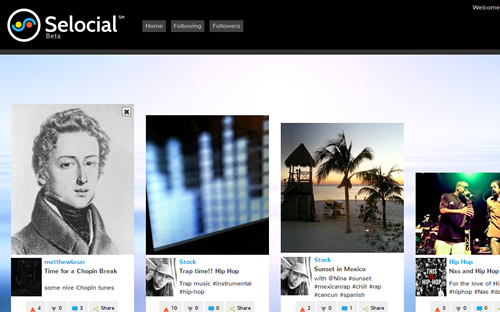We’ve been following the Federal Communication Commission’s latest open Internet proposal, and like my colleague Paul Riismandel, I’m skeptical about it. FCC Chair Tom Wheeler’s plan seems tailor made to forge a two-tiered Internet in which the big ISPs pick winners and losers via priority access “fast lane” deals.
The big question for us around here, of course, is why does this issue matter for mobile radio/music services? I can think of four interconnected reasons. Here they are in rough outline:
First, many mobile radio/music services operate on very tight profit levels. Pandora, Spotify, and other companies pay huge percentages of their revenue for royalties and data costs. Bloomberg just ran a piece titled “Spotify hits 10 million paid users; now can it make money?” Any first strike priority access deal among this circle of competitors with an ISP could tip the balance of profitability towards one party and very much away from the others.
Second, it seems like it is only a matter of time before more of these radio/music providers get absorbed by larger entities. Beats Music is now part of Apple. Twitter almost tried to buy SoundCloud last week, it seems. UK market think tank Generator Research has a fascinating article suggesting that Pandora consider becoming a Mobile Virtual Network Operator. MVNOs partner with big ISPs and resell wireless service under their own brand. While Pandora isn’t making much of a profit, it does have a very good brand. The kind of priority access deals that the FCC seems poised to allow will probably accelerate these sort of acquisitions and relationships.
Third, I presume that the direction that the FCC is going in will almost certainly green light priority access deals that take advantage of the low data caps the big ISPs impose on consumers. In January, AT&T announced a “sponsored data” plan for its mobile customers.
Basically if a company with an application pays AT&T, no data use will accrue to customers using its app. That means no worries that using that app will cause consumers to exceed their data plan cap and incur extra charges. Guess which radio/music apps mobile customers with 1GB data caps are going to bee line for? The sponsored data plan versions, I would presume. Here’s another way that the big ISPs could easily pick winners and losers in the mobile music/radio sector.
Finally, the Commission’s priority access friendly proposals will very likely put the music services that moneyed outfits like Apple (iTunes Radio), Google (All Access), and Microsoft (Xbox Music) offer in the proverbial cat bird seat, and the more independent companies in increasingly untenable situations.
Earlier this month, Google, Amazon, Netflix, Twitter and a host of other companies sent a letter to the FCC expressing their concern about Wheeler’s net neutrality proposals. No Internet music/radio outfit with which I am familiar signed the statement. I guess none of them think this is a big deal, or they have more pressing priorities.
Speaking of independent services, I did follow up with Selocial, the app that allows you to take a picture and then attach 15 minutes of music to it. Selocial is a fun beta venture—the music database comes from SoundCloud. In some ways the service reminds me of 8tracks.com, which also allows you to attach a picture to your playlist. But Selocial lines up all the “Selomixes” that users generate along side each other so that you get to see what lots of other people are doing in an interesting Pinteresty way—sort of like entertainment booths on a boardwalk. See my Chopin mix on the left below.
One problem (from my perspective): when you try to share the link for your Selomix, potential listeners are directed to sign up or sign into Selocial, rather than just allowed to enjoy your mix. Even when I’m signed into Selocial, the link directs me to sign in yet again. This is a bit of a chore, I think. I’d make Selocial mixes public from the getgo.
Meanwhile, nostalgia lovers will doubtless enjoy the Hootsuite blog’s recent post titled 7 things we miss about MySpace (it taught us html coding; it is where we first started blogging; it introduced us to the selfie . . . ). It should be noted, however, that MySpace still exists; in fact, in fact the service remains a leading generator of tweets among music applications. Since I missed MySpace in its salad days, maybe I’ll go over and get myself an account now, just for kicks. . . .
We cover social music sharing communities every Monday in our Internet DJ feature.




